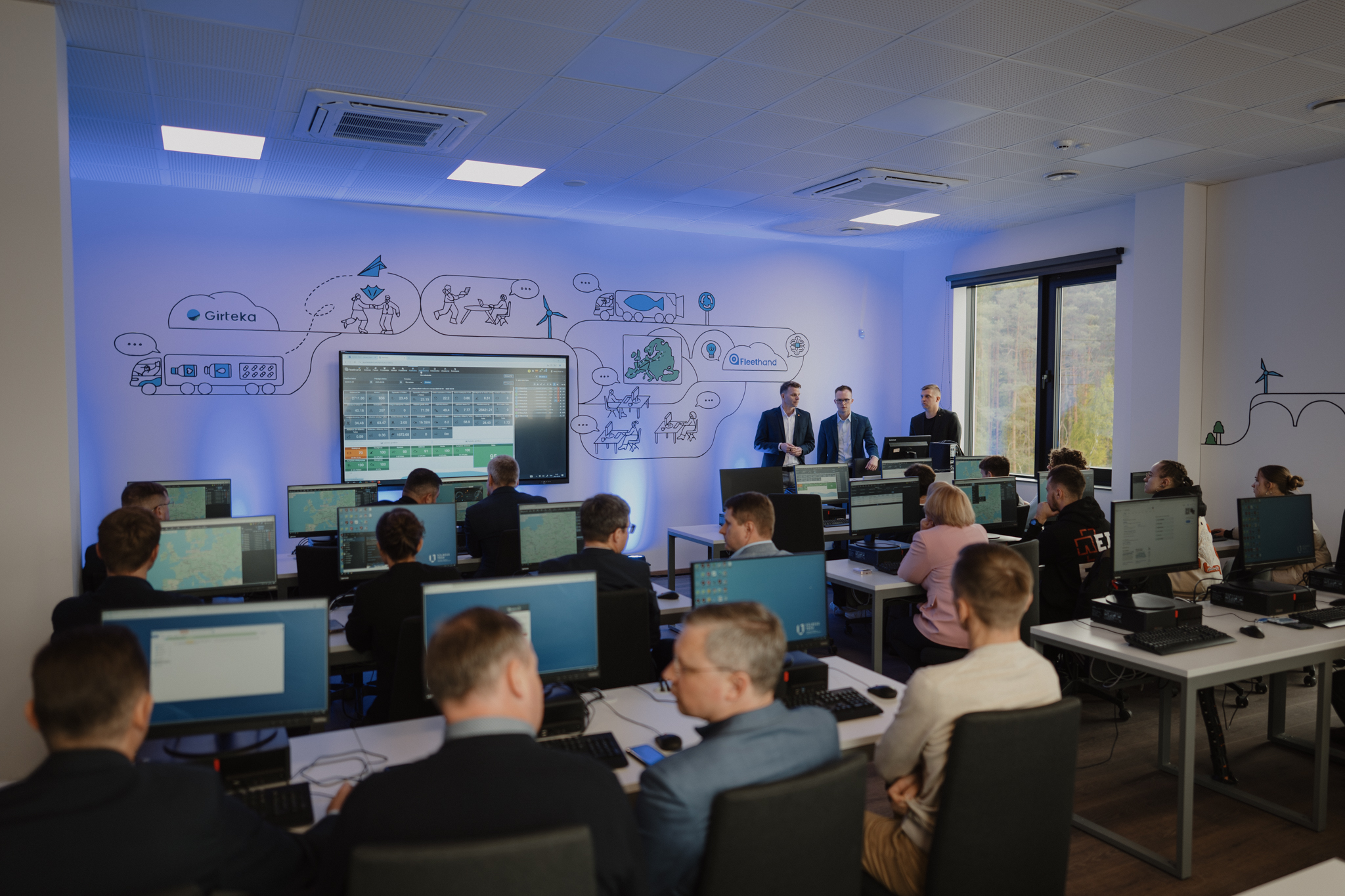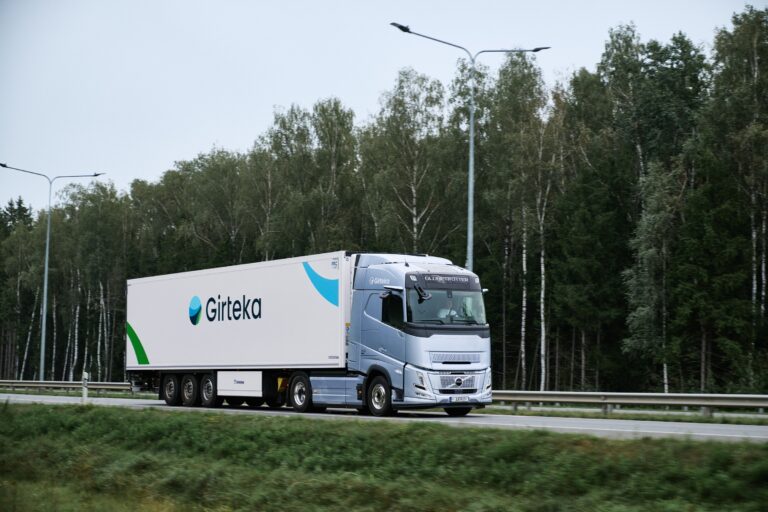Share it:
The transport and logistics sector is facing a double challenge: a shortage of talent and a perception problem among younger generations. While Vilnius Tech’s logistics programmes have an impressive 89.58% graduate employment rate (59.07% in skilled roles), only 157 students are currently enrolled. Many employers say students aren’t lacking motivation – they’re lacking hands-on experience with modern tools. That gap makes it harder for graduates to move smoothly from university into the job market.
To tackle this, Girteka Group has teamed up with Vilnius Tech and technology company Programmatus. Together, they’ve launched a new digital logistics lab at Vilnius Tech’s Faculty of Transport Engineering. Powered by Fleethand the lab gives students direct experience with the tools they’ll use in real jobs.
Bridging the Gap Between Studies and Real Work
“The demand for logistics specialists in Lithuania remains very high,” says Prof. Dr. Oleg Prentkovski, Dean of the Faculty of Transport Engineering at Vilnius Tech. “This sector generates around 12% of Lithuania’s GDP – more than double the EU average. As e-commerce and digitalisation grow, we need specialists who not only keep up but lead the way.”
Mindaugas Paulauskas, CEO of Girteka Transport, agrees. “Young people still see logistics as traditional or even outdated – warehouses and truck driving. But that’s not the full picture. This is one of the most digitalised industries in Europe, full of analytical, fast-paced, and high-tech roles.”
Logistics Has Changed
The industry today looks nothing like it did a decade ago. Back then, managers worked with fax machines and paper maps. Now, it’s all digital. Drivers get their tasks, routes, and updates via apps. That shift improves safety, efficiency, and compliance.
“We’re going to see even more automation,” says Paulauskas. “Telematics, AI, data analytics – these are becoming standard in transport management. Future managers need to understand how these systems work and how to apply them in real situations.”
What Students Will Learn
The lab gives students a chance to plan routes, track trucks in real time, manage freight flows, and make decisions based on data. All of this is done in Fleethand, the same system used by Girteka.
Tomas Sergadejevas, founder of Fleethand, explains: “This platform covers everything—from order intake and routing to document scanning and invoicing. AI even helps with tasks like choosing the best petrol station, planning rest breaks, and optimising costs. Students will leave this course ready to work in today’s transport industry.”
Skills for the Next Generation of Logistics Professionals
The rise of automation is shifting logistics roles from repetitive tasks to strategic work. That means future professionals will need a broad set of skills.
“Four groups of skills matter most,” says Paulauskas. “Digital skills and sustainability awareness. The ability to make decisions and stay organised. Strong communication and negotiation abilities. And, just as important, accountability and adaptability.”
He adds, “By investing in this kind of training now, we’re preparing a generation that can confidently use digital tools and lead change in the industry. These students will build the future of logistics.”



